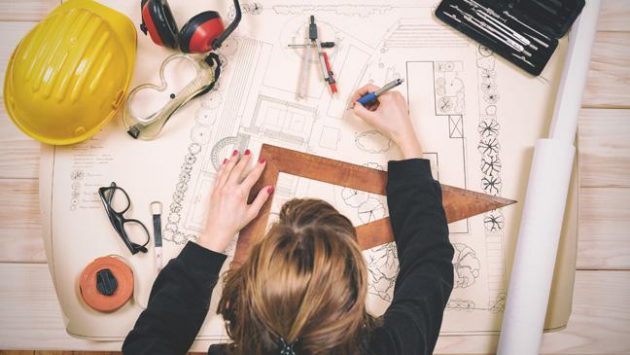Building your dream home involves meticulous amounts of planning and nuanced attention to the finer details. Often the fine touches that make your home cozy and beautiful are beyond your control, and demands more professional hands. This means employing an architect that can translate into a visual marvel, all you have in mind.

Moreover, making a home is an investment that you ought to protect. Any damage needs money to repair and having home insurance avoids the hassle of digging into your life savings to pay for these damages. But how do you select a good architect and manoeuvre through the vast number of home insurances available? Read more to find out.
The makers of a heavenly abode
1. Sources of appointment
There are several places from where you can get architect contacts from. These include:
- Online portals
- Word of mouth for local architects
- Sources in magazines about homes
- Referrals from contacts
- Advertisements
While online and magazine referrals come with their own flare and will probably be good, remember that the demand for them is usually high. Thus, their asking price for building your own home is usually quite a lot and they may not even consider taking up small time projects like small family homes if their schedule is booked. However, if you do get hold of one, you can be assured of a good job.
Local architects on the other hand are more readily available. You can even get discounts if the person referring you is close to the architect or regularly recommends him. Local referrals also give you an idea of the quality of work, and you can always choose someone who is highly regarded in your area.
2. Choosing the right person
Now that you’ve consulted a list of a few architects based on referrals and cost, you need to narrow it down to a singular soul that resonates with what you have in mind. The easiest way to do that is to just ask questions, i.e. conduct and interview.
Some questions you can ask right off the bat include:
- Pictures and details of previous projects.
- Degrees he holds.
- How much time he will take.
- Details about the team that is going to work on your home.
- Most importantly, a detailed work up and explanation for what he has in mind for your home.
A tell-tale sign that an architect is not worth investing in, is if he isn’t listening to your ideas about your own home and just pushing what he has in mind. A good architect takes your dreams and shapes them into a work of art. However, remember that the primary role of an architect is merely to save you money wherever possible. In addition, supervising the contractors to do their jobs quickly and properly would be their second role. Thus, questions in this direction should also be asked.
Financial protection of damages
1. Things to keep in mind
- Credit score: Not only does a credit score influence your mortgage charges, a high score also reduces the premiums you will be charged for home
- Discuss what’s important: Keep in mind what your needs are. If you live in an earthquake-prone area or an unsafe neighbourhood get the insurance that covers these issues. Check your belongings and get the insurance that covers most of them.
- Benefits of choice: Always keep your options open. Check out as many options as you can and then try out a home insurance comparison as well.
- Narrow it down: After you’ve scanned out all the plans that fit your needs, the final step involves narrowing it down, based on premiums and ease of pay-outs, to what suits you best.
2. Pitfalls and myths
A few common misconceptions people have about home insurance include:
- Acts of God: Fires, earthquakes, floods, etc. are often covered more or less by most major household insurance plans.
- Insurance covers all: Household belongings, furniture, jewellery, cutlery, etc aren’t covered by home insurance.
- Only for homeowners: Renters can also buy home insurance and considering they have household items that aren’t rented, they probably should.
- Land costs: Home insurance only accounts for the physical structure of your home, and does not payout for the appreciating asset of land.
Conclusion
Your home is a one-time investment which gives you a holistic place to stay possibly for the rest of your life. Thus, the stakes for this are high, and one would never want to make mistakes while building their dream home. Thus, hiring a good architect and protecting your assets with reliable home insurance are both key factors to be satisfied with your purchase.














